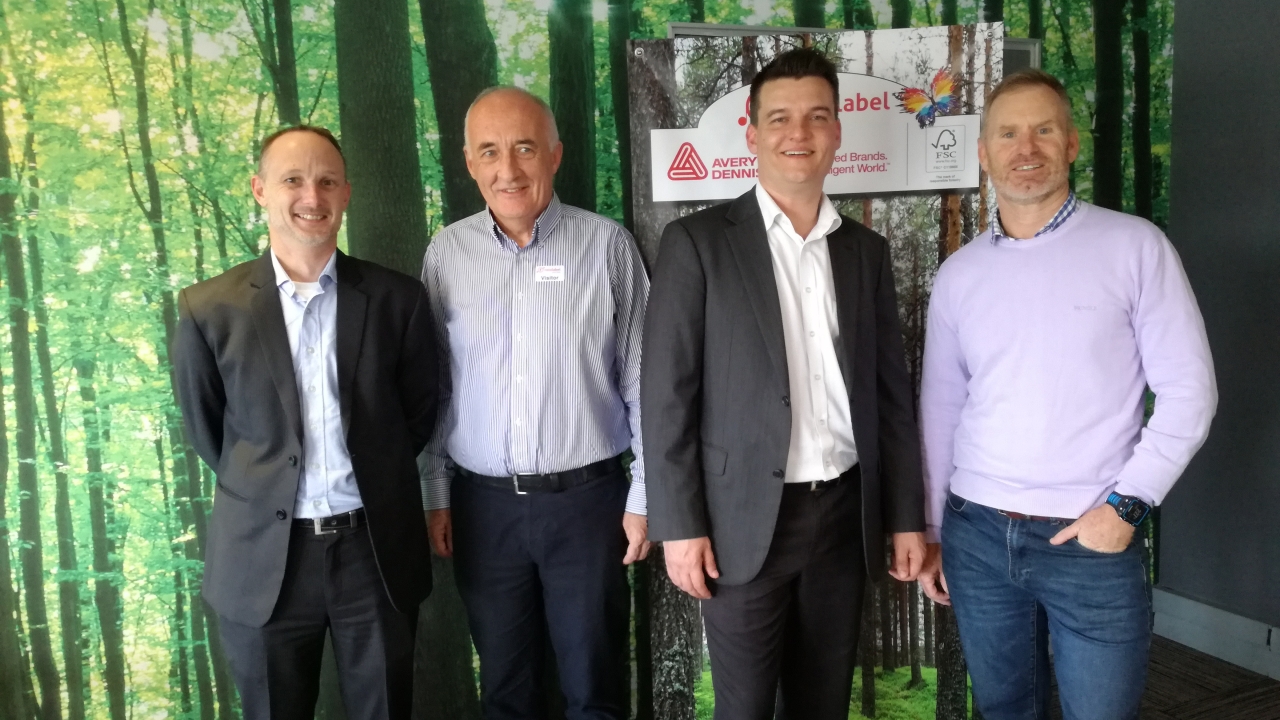Sustainable labels in Africa

Pushing this worthwhile initiative from the retail aspect was Woolworths Foods Good Business Journey specialist, Tom McLaughlin, well-known in packaging circles for his uncompromising stance on all matters environmental. The Rotolabel team, led by sales director Grant Watson, was equally clear in its intent – as printers of paper-based labels supplied to many of Woolworths’ suppliers, they joined the project to underline the company’s environmental policy. The third player was Avery Dennison, with Mark Ellis, commercial director, and Andrew Zwicky, sales manager, representing this part of the triumvirate. And the glue holding the project together was FSC (Forest Stewardship Council)’s sub-regional coordinator, Southern Africa, Manushka Moodley. Recently, they came together at Rotolabel’s plant in Cape Town, South Africa, to commemorate their pact and celebrate this innovative industry collaboration.
The starting point
It all started with Woolworths Good Business Journey. As outlined by Tom McLaughlin, a key component of this much-vaunted mission statement is the retailer’s dedication to selling products that cause minimum harm to the natural environment, that help to maintain biodiversity and improve the lives of workers throughout the supply chain. Inter alia, this includes recognizing the environmental imperative of safeguarding the world’s remaining ancient and endangered forests, and the role played by reducing deforestation and forest degradation in mitigating climate change.
‘We look for ways to work with our suppliers and NGO partners to ensure that products (such as paper) are sustainably sourced,’ McLaughlin explains. ‘We’re committed to reducing, and eventually removing, deforestation and forest degradation from any of our operations and supply chains.’
As a market leader in label printing, Rotolabel was keen to join the initiative, recognizing a critical need to invest in an environmentally sustainable future.
‘We incorporate environmentally-responsible practices in all levels of our business,’ says Grant Watson. ‘For instance, we reduce the use of precious resources through efficient practices; we reuse materials wherever possible; and we recycle operational by-products or waste where efficient recycling methods are available.’
As part of this philosophy, he adds, paper is purchased from suppliers who source them from reputable mills using only responsible forestry practices.
‘At Rotolabel we pride ourselves on doing the right thing,’ says Watson. ‘Underlining this culture, our Forest Stewardship Council (FSC-C119866) certification joins other key certifications such as Quality Management System (ISO 9001: 2008) and Food Safety Management System (ISO 22000: 2005).’
Paper is an important raw material for Avery Dennison, and the company is committed to sourcing pulp and paper materials sustainably. ‘Though we don’t own or manage forests, we support the use of sustainable forest management practices,’ explains Mark Ellis. ‘We also promote the use of certified fiber in our products and have attained FSC chain-of-custody certifications for 49 Avery Dennison facilities in Asia Pacific, Europe, Latin America and North America, providing third-party assurance to our customers that fiber was sourced from responsibly managed forests.’
Stay up to date
Subscribe to the free Label News newsletter and receive the latest content every week. We'll never share your email address.


